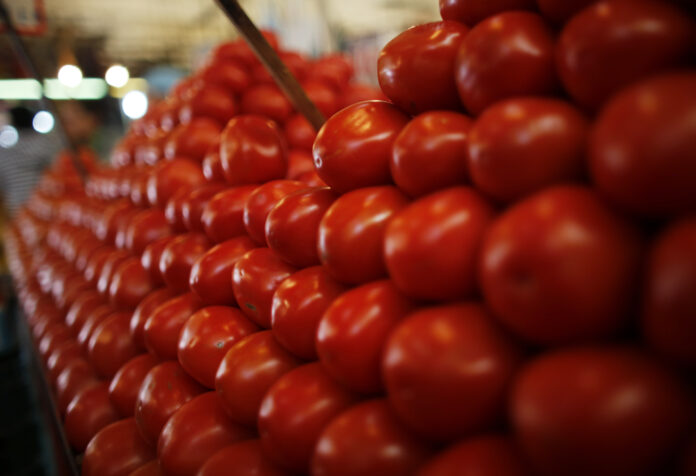A groundbreaking collaboration between scientists in Pakistan and China is set to transform Pakistan’s tomato farming industry by reducing pesticide use by over 40% without sacrificing crop yields. This new approach was tested in field trials recently completed in Sargodha, with researchers from the University of Agriculture, Faisalabad (UAF) and China’s Yunnan University.
The project, part of the Yunnan Fruit-Vegetable-Flower IPM International Joint Lab, addresses one of Pakistan’s most pressing agricultural challenges: pest control, particularly the invasive Tuta absoluta that devastates tomato fields, especially in the scorching heat of Punjab.
Tomatoes are cultivated year-round across 150,000 hectares in Pakistan, with yields typically ranging from 4-6 tons per acre, significantly below the global average of more than 10 tons per acre. A study by Agriculture University Peshawar in 2024 highlighted the lack of proper pest management knowledge and practices among farmers as key contributors to low yields.
Dr. Abid Ali, a Pakistani agriculturist, explained the challenges of pesticide use in Pakistan, stating that many farmers resort to unregulated chemical spraying, which leads to pesticide resistance, soil degradation, and threats to biodiversity and human health.
The collaborative research team, including Pakistani Ph.D. candidates Jawad Hassan and Miss Sana Anjum, tested the innovative “3MP” strategy (Multidimensional Management of Multiple Pests) in the tomato-growing region of Chak # 48 NB in Sargodha. This method moves away from relying solely on chemicals, combining two key techniques: adjusting fertilization to enhance the tomato plant’s natural resistance and planting companion crops like Sesamum indicum and Verbena hybrida.
These companion plants act as a natural pest control system: Sesamum indicum serves as a ‘trap crop,’ luring pests away from tomatoes, while Verbena hybrida provides nectar to support beneficial insects that prey on the pests.
The results were significant. The 3MP strategy led to a 40% reduction in chemical pesticide use while maintaining or slightly increasing tomato yields. Additionally, it improved fruit quality, soil health, and biodiversity, while also reducing greenhouse gas emissions associated with farming.
This initiative, which began in 2023, is part of a larger global validation of the 3MP strategy, which is also being tested in China, Vietnam, Thailand, and several European nations. The European Commission, through the Horizon 2020 program “ADOPT-IPM,” has funded some of these collaborative activities.
Dr. Ali noted that the next phase of the project will focus on policy adoption, with plans to conduct workshops for farmers, extension workers, and policymakers to integrate the 3MP strategy into national pest management guidelines.




